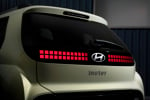Prestige brand vehicles are set to be a goldmine for used car dealers despite growing volumes.
The market for prestige-brand vehicles has increased its share of the UK's new car market by 112% over the last 10 years.
According to Glass's Information Services, a number of factors should ensure continued premium-brand growth, to the detriment of the volume marques. In addition, despite additional quantities of prestige-marque vehicles now entering the second-hand market, there is unlikely to be further falls in their residual values.
Ten years ago the prestige brands' share of the UK's new car market was 8%. By the end of 2003 it had grown to 17%.
77.8% of this ten-year growth took place during the last five years.
Aside from the inherent perceived desirability of their cars, Glass's says several additional factors are helping prestige marques grow their market share.
"Lack of demand in home markets has led, for example, German manufacturers to increase right-hand drive production in order to take advantage of the UK consumer boom," says Alan Cole, editorial consultant at Glass's Market Intelligence Service.
“18-months ago price incentives on premium-brand cars were virtually unheard of, but the availability of significant discounts peaked a year ago and have been maintained ever since. Transaction prices, even for private buyers, have therefore reduced considerably over the last 18-months, with the effect of increasing the number of prestige cars sold in the UK," ays Cole.
While this activity has been detrimental to values of nearly-new cars, Glass's says the values of three-year-old examples have been largely unaffected.
The continuing buoyancy of the UK economy is encouraging buyers to spend more, fuelling sales of desirable premium-priced vehicles.
"With ongoing house price inflation fuelling mortgage equity release, and with interest rates still at a low level, the consumer spending boom shows no sign of abating. Even the prospect of further rate rises has not yet altered the feeling of relative wealth, and the affordability of finance has encouraged more consumers to spend additional amounts to get behind the wheel of a premium-sector car," Cole added. Fleet car buyers have become increasingly aware of the importance of vehicle whole life costs, which is greatly influenced by depreciation.
"With most disposals taking place after three years, good residual value performance and high levels of desirability are vitally important for companies looking to maximise their return when they defleet," suggests Cole.
This is where prestige brands score over their volume counterparts. In the upper medium sector, average residual values for premium models (after three years, 36,000 miles), are about 46%, while volume models' residuals average at some 34%. This means a prestige model can often be more cost effective to operate.
The prestige marques will soon offer an ever-increasing range of smaller cars to eat away at the share of volume manufacturers.
Cole explains, "Models such as the BMW 1 Series and Saab's 9-1 and 9-2 Series will further boost prestige sales. Add to this the growth of new niche products, such as forthcoming SUVs from Audi, BMW and Mercedes-Benz, it is quite clear why the volume manufacturers are beginning to feel the squeeze."














Login to comment
Comments
No comments have been made yet.